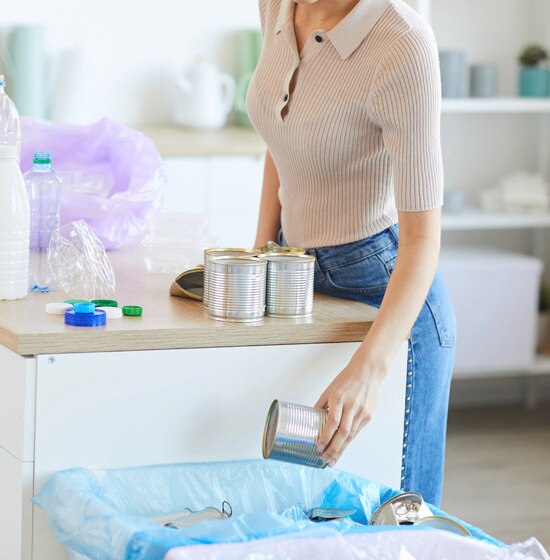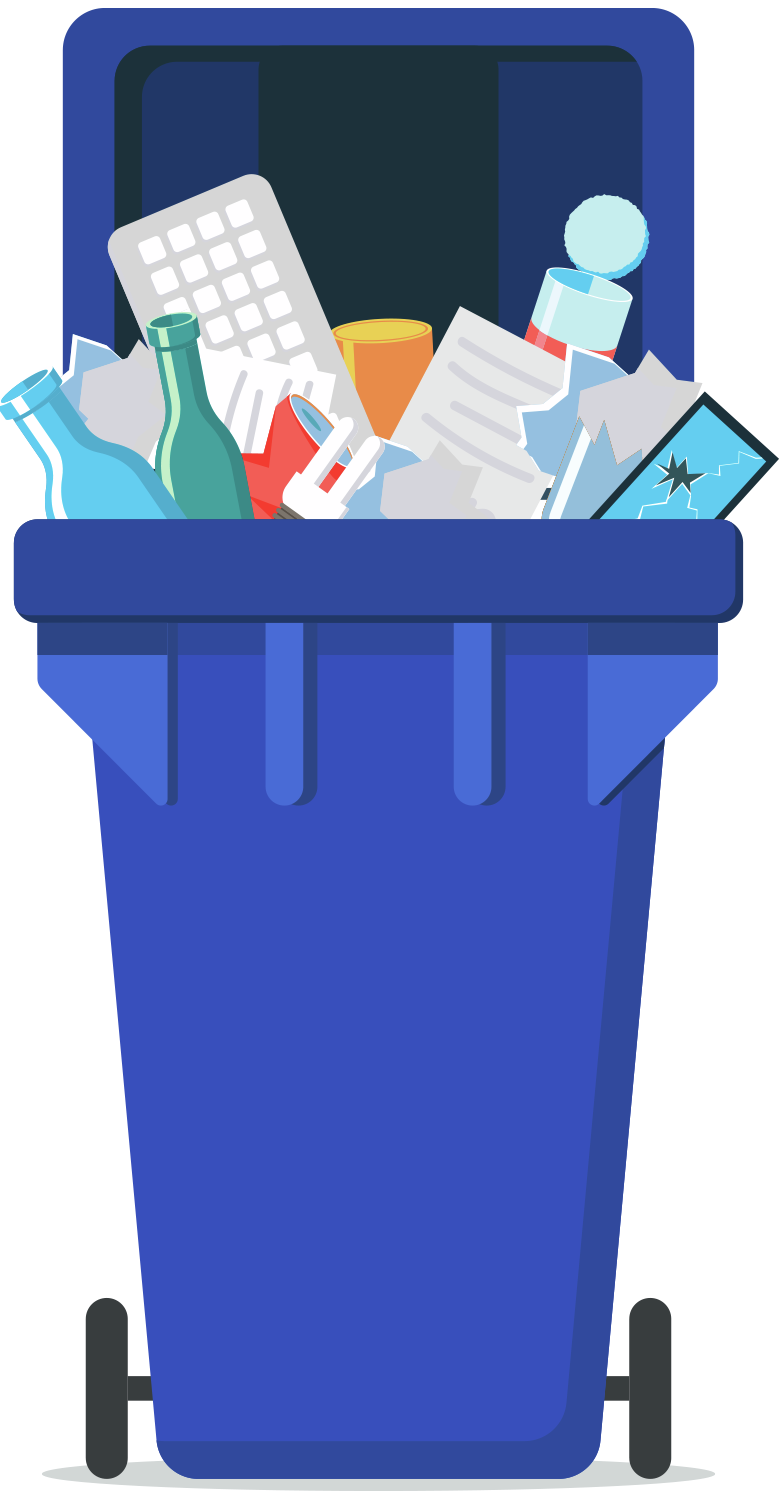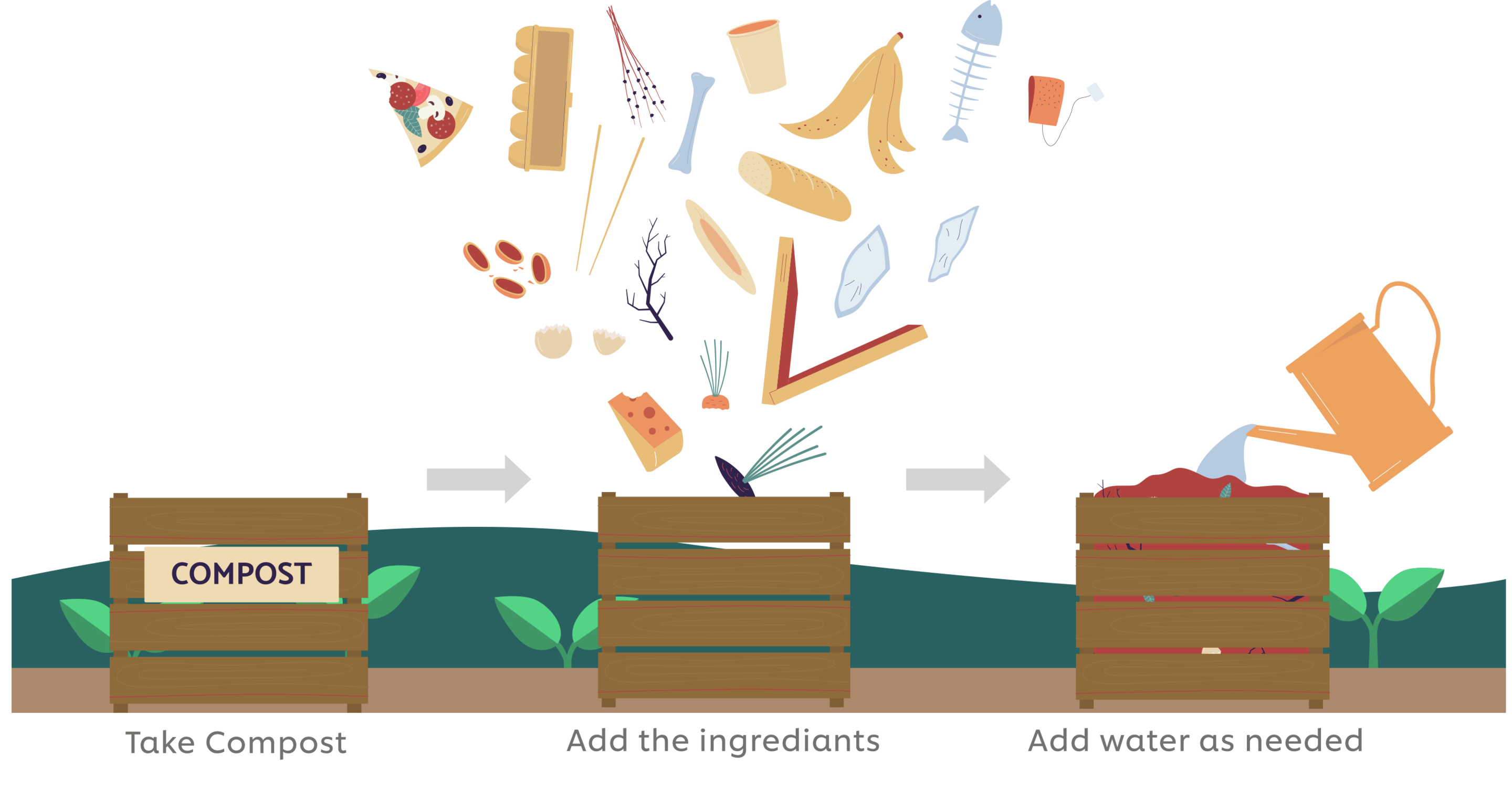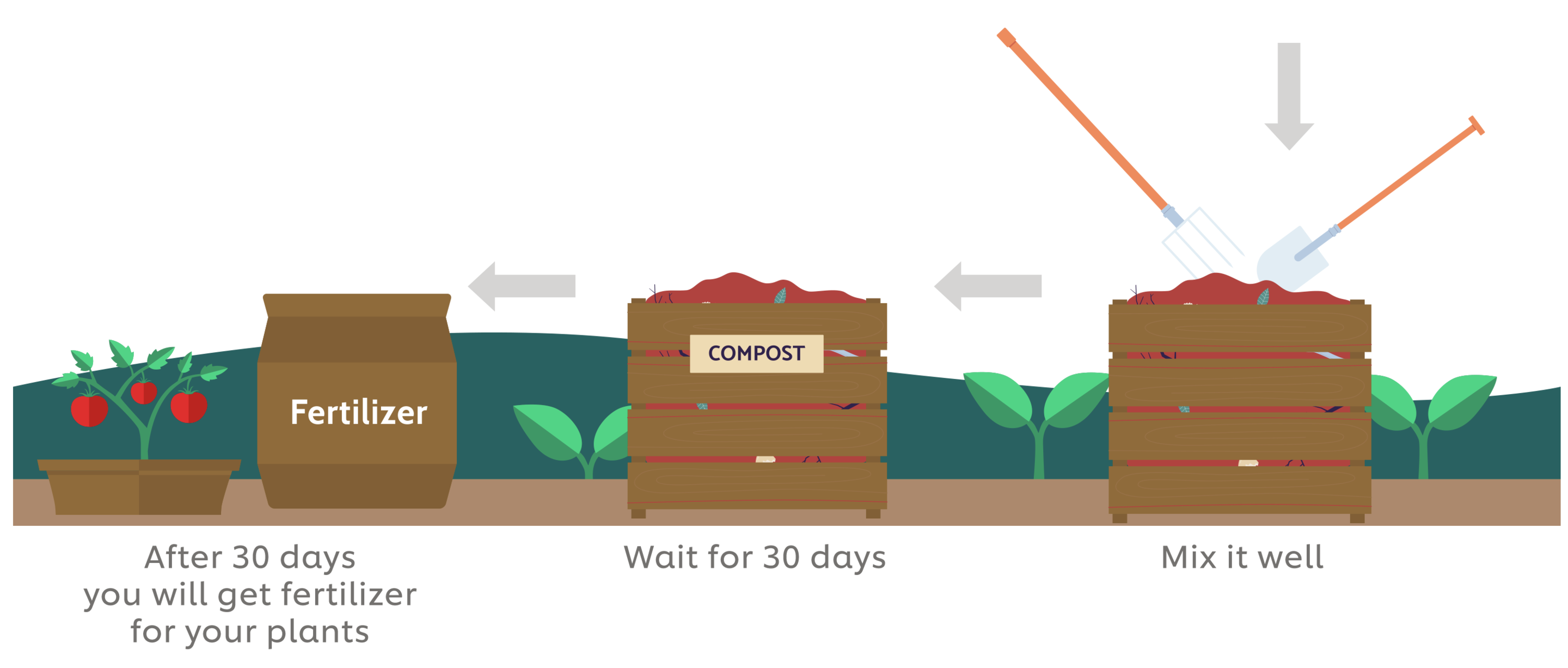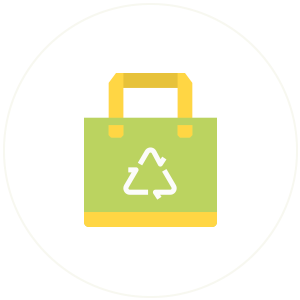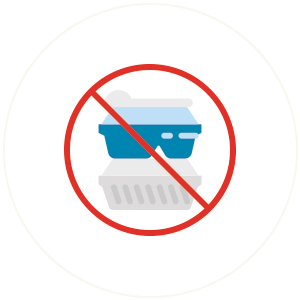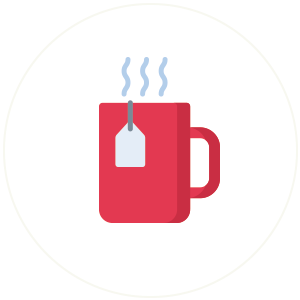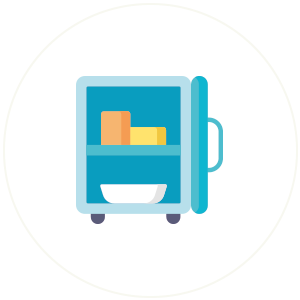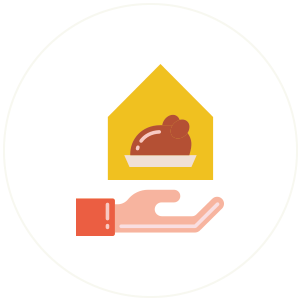Skip to:
Diy at Home

Effective source segregation is the first step to efficient recycling and reduction of waste.
Segregation at source is one of the most important activities that we need to carry out for effective waste management. When waste is segregated correctly it makes it easier to be recycled & re-used, with higher potential for recovery. In addition, segregated waste also reduces health and safety-related risks to waste pickers and the community at large. Let us pledge to #StartALittleGood & segregate our waste and thus take the first step towards a cleaner city and a healthier ecosystem!
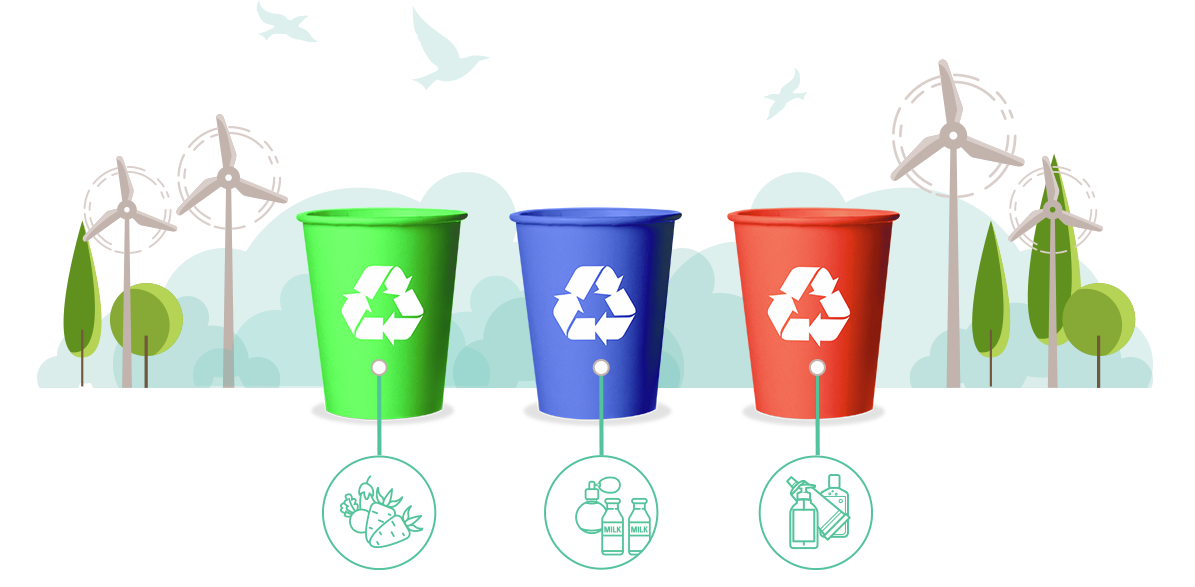
How to dispose dry waste

Things you will need:
Composter, 3 minutes each day, patience
To know more about composting
Reduce your waste
Once you’ve recycled or composted most of your trash, you’ll want to know how you could reduce the waste in the first place. Here are some easy ways:

